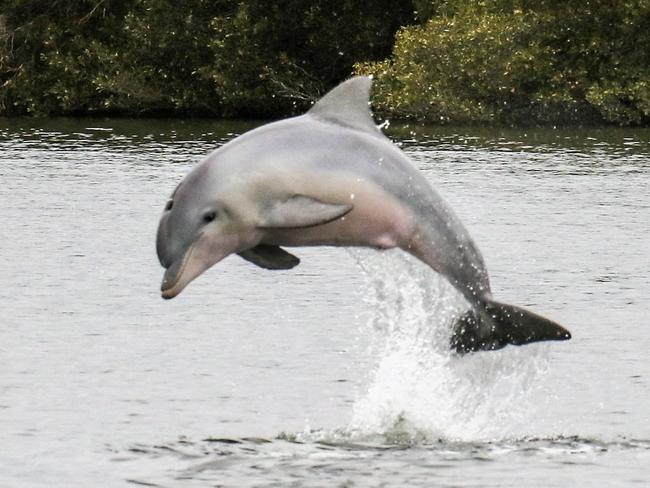Transport Minister Stephan Knoll open to changing speed limits in Adelaide Dolphin Sanctuary
SPEED limits in the Adelaide Dolphin Sanctuary may be changed by the State Government to better protect the Port River dolphins.
SPEED limits in the Adelaide Dolphin Sanctuary may be changed by the State Government to better protect the Port River dolphins.
Transport Minister Stephan Knoll said he was now open to changing the speed limits in certain sections of the sanctuary which includes the Port River, Barker Inlet and North Arm.
On Tuesday, he met with Adelaide’s leading dolphin expert Dr Mike Bossley — who has been leading Messenger Community News’s Protect Our Dolphins campaign — and representatives from Flinders Ports, the recreational and commercial fishing sectors, the boating industry, the SA Jet Ski Club and staff from the Environment and Transport Departments.

The roundtable discussion was held to discuss Dr Bossley’s proposal for a 10-knot maximum speed limit in the Adelaide Dolphin Sanctuary excluding open waters to prevent dolphins being killed by speeding boats.
In the past year, six dolphins have died in the Port River sanctuary from suspected speeding boat collisions.
Mr Knoll said it was a “productive meeting” and there were “varied and differing views” as to the best solution.
“The State Government will continue working towards a solution that balances human and marine safety, as well as the interests of Flinders Ports, the fishing sector and other stakeholders,” Mr Knoll said.
“That solution may involve a mixture of measures, in addition to the steps the State Government has already undertaken, and altering the speed limit in certain areas may form part of the overall solution.
“Certainly many of the stakeholders had serious reservations about elements of Dr Bossley's speed limit proposal.”
Dr Bossley said there was a “general acceptance” that the speed limits — which currently range wildly from 4 knots to unlimited — needed to be reviewed.
“I’m optimistic that we’ll get a change in the speed limits, it might not be everything I want, but we’ll get some change,” Dr Bossley said.
“There was total consensus that no one wants to hit or kill a dolphin.”
The Protect Our Dolphins campaign, which now has 20,000 signatures on its petition, launched in April after this season’s dolphin baby boom ended in tragedy with four out of seven calves dead.
The only calf to be recovered was confirmed to be a boat death.
A recent report by the South Australian Museum found that 17 out of 35 dolphin fatalities in the past 13 years were caused by “blunt trauma impact”, which Dr Bossley said, could have only have resulted from being hit by speeding boats.
Dr Bossley said Mr Knoll was now going to put together a proposal which would be sent to the stakeholders for feedback in the next few weeks.
